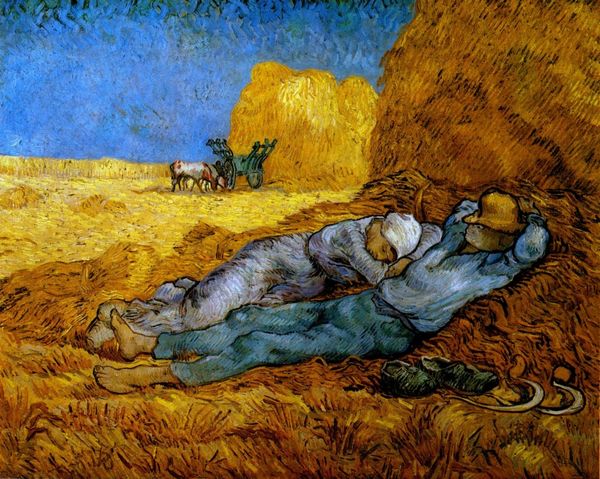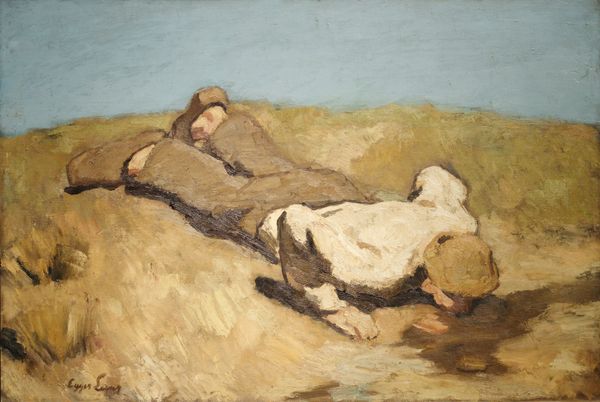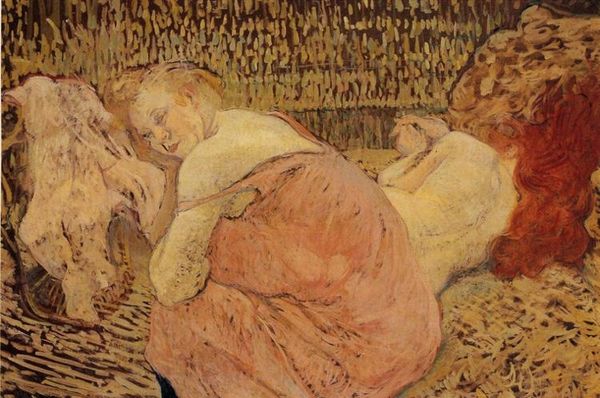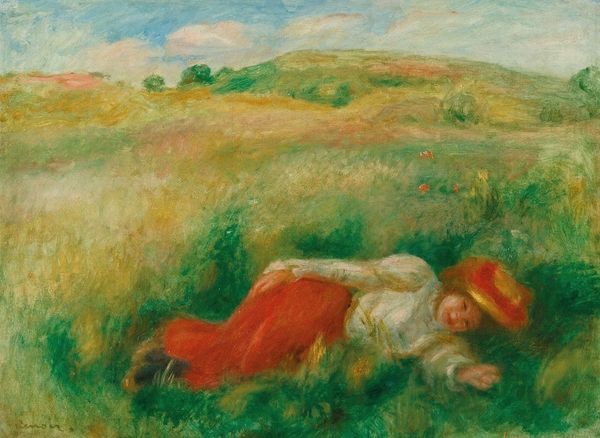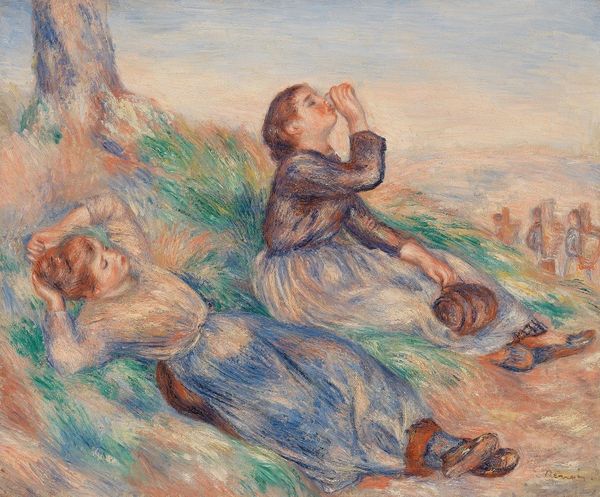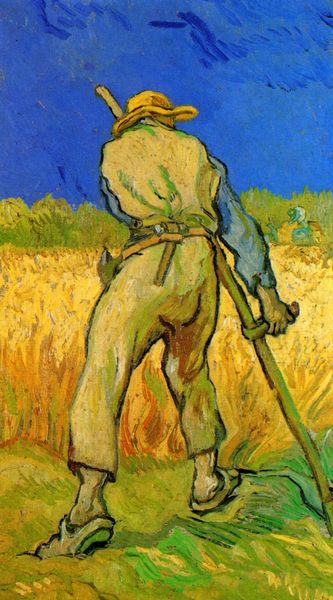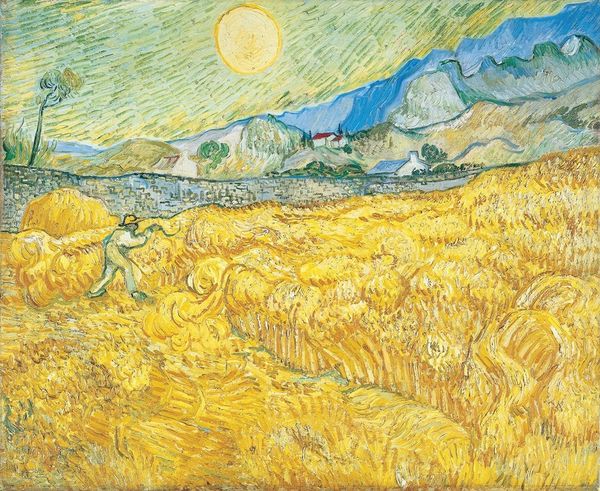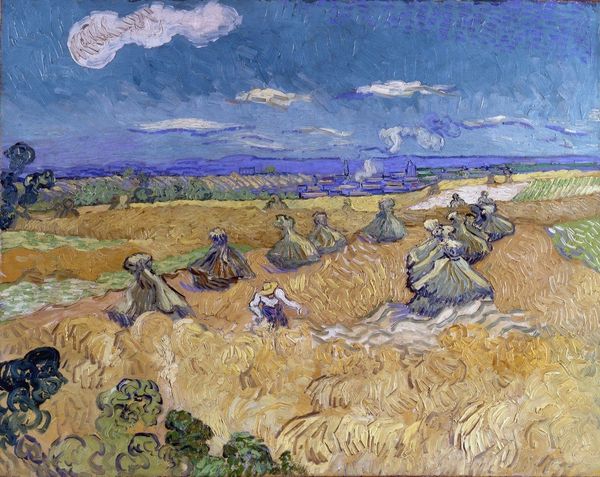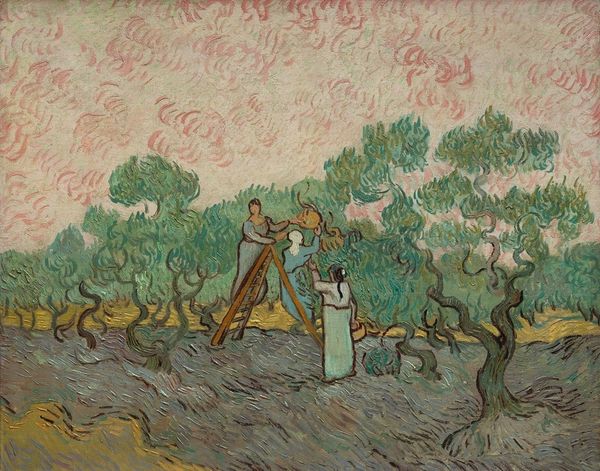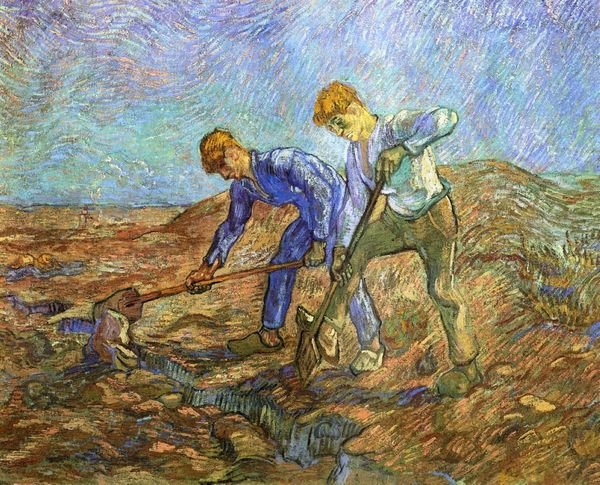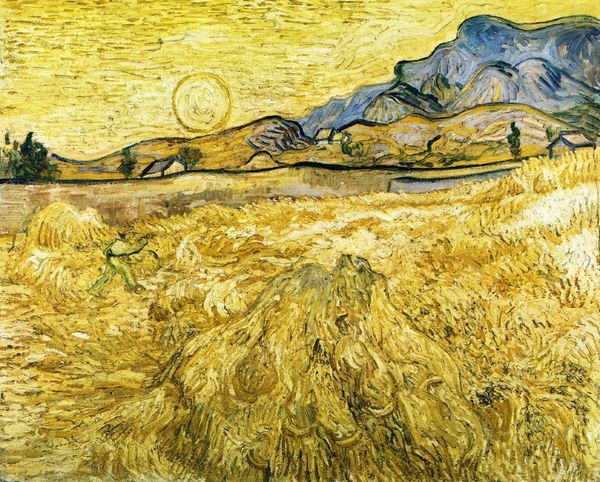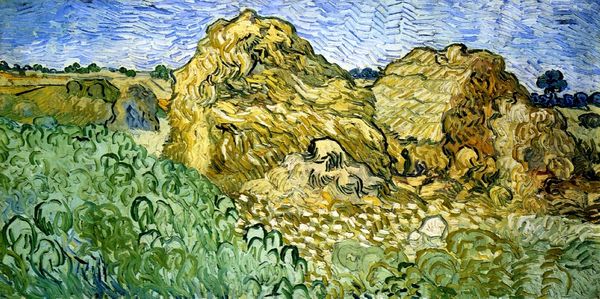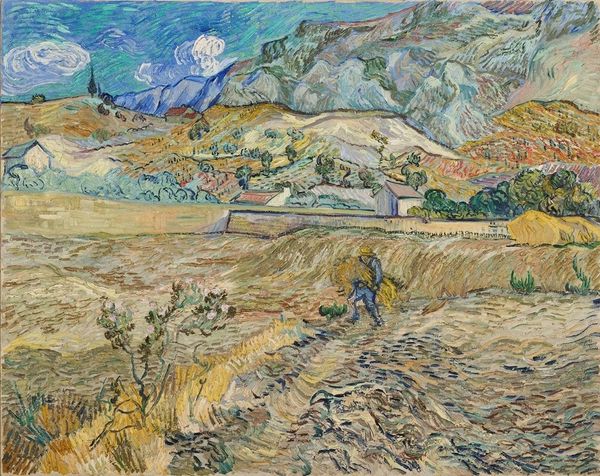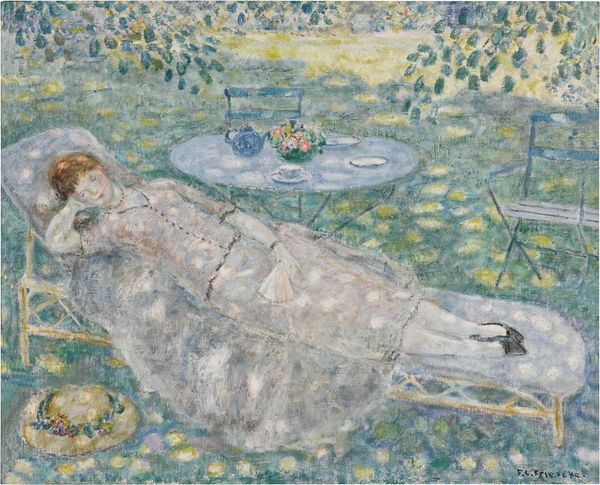
painting, oil-paint, impasto
#
figurative
#
painting
#
oil-paint
#
landscape
#
figuration
#
oil painting
#
impasto
#
romanticism
#
genre-painting
#
post-impressionism
Copyright: Public Domain: Artvee
Vincent van Gogh painted 'The Siesta', depicting a pair of farm workers resting in a field, during his time in Saint-Rémy, France, in the late 1880s. The image is a powerful statement about the dignity of labor and the rhythms of rural life. Van Gogh's choice to depict laborers during their break, rather than in the act of labor itself, invites us to consider the human cost of agricultural work. His palette, dominated by yellows and blues, speaks to the heat of the day and the cool relief of rest. The image also subtly critiques the social structures of the time. By idealizing the working class, Van Gogh challenges the prevailing attitudes of the bourgeois society. To understand this painting fully, one might research the agricultural practices of late 19th-century France, the socio-political context of rural life, and the art market that shaped Van Gogh's career. Only then can we appreciate the profound social commentary embedded in this seemingly simple scene.
Comments
No comments
Be the first to comment and join the conversation on the ultimate creative platform.
